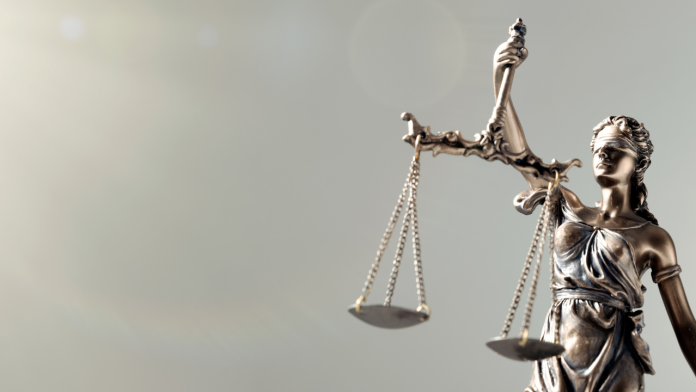Introduction
The world of international diplomacy and law is complex, and within it, the International Court of Justice (ICJ) stands as a symbol of justice and peace. In this article, we will delve into the ICJ, its history, jurisdiction, significant cases, challenges, and its role in the realm of international relations. Let’s embark on this journey to understand the intricacies of the ICJ and its pivotal role in shaping our global landscape.
History and Formation
The ICJ, often referred to as the World Court, was established in 1945, following the end of World War II. It is the principal judicial organ of the United Nations and is based in The Hague, Netherlands. Its primary purpose is to settle legal disputes between states and offer advisory opinions on legal questions referred by the UN General Assembly, Security Council, or specialized agencies.
Jurisdiction and Functioning
The ICJ’s jurisdiction covers a wide range of matters, including disputes over territory, maritime boundaries, state responsibility, and treaty interpretation. This court is composed of 15 judges elected by the UN General Assembly and the Security Council, ensuring representation from various regions of the world. Its proceedings are conducted in a court-like fashion, with lawyers representing states and presenting arguments.
Key Cases and Decisions
Over the years, the ICJ has handled numerous landmark cases. One of the most notable cases was the Nicaragua v. United States case in the 1980s, where the ICJ ruled against the United States for supporting the Contras in Nicaragua. This case highlighted the court’s authority in holding nations accountable for their actions. The ICJ’s decisions, although not always enforceable, hold great moral and diplomatic weight.
Criticisms and Challenges
Despite its significance, the ICJ has not been without controversies. Some criticize its lack of enforcement mechanisms for its rulings, which can make its decisions toothless in practice. Additionally, the court’s perceived bias and political influence have raised questions about its impartiality.
Role in International Relations
The ICJ plays a crucial role in promoting peace and justice in international relations. It collaborates with other international organizations, including the United Nations and the International Criminal Court, to ensure a more just and peaceful world.
Prominent Justices
The ICJ has been graced with some of the world’s most distinguished judges. Notable figures like Sir Robert Jennings and Dame Rosalyn Higgins have left a lasting legacy through their work on the court.
Landmark Cases
Let’s dive deeper into a few significant cases that have shaped the ICJ’s history:
Corfu Channel Case (United Kingdom v. Albania)
In this case, the ICJ ruled on a dispute concerning damage caused by the explosion of underwater mines in the Corfu Channel. The court found Albania partially responsible and emphasized the importance of navigational safety.
Case Concerning Armed Activities on the Territory of the Congo (Democratic Republic of the Congo v. Uganda)
This case addressed Uganda’s involvement in the conflict in the Democratic Republic of the Congo. The ICJ ruled against Uganda, highlighting the importance of respecting the sovereignty of other nations.
Current and Future Relevance
In the 21st century, the ICJ remains a vital institution in the international arena. With ongoing conflicts and disputes, its role in providing peaceful resolutions and upholding international law is as important as ever.
How to Approach the International Court of Justice
Individuals, organizations, and countries can engage with the International Court of Justice by bringing cases to the court, seeking advisory opinions, or participating in the court’s proceedings. It offers a platform for addressing international legal issues.
The ICJ and Human Rights
The ICJ has played a critical role in upholding human rights. Cases like the Bosnia and Herzegovina v. Serbia and Montenegro case demonstrated the ICJ’s commitment to holding states accountable for human rights violations.
Recent Developments
The International Court of Justice continually adapts to the changing landscape of international law. Recent developments include its role in addressing environmental disputes and concerns related to climate change.
The International Court of Justice’s Role in Conflict Resolution
The International Court of Justice has successfully resolved many conflicts, demonstrating the power of diplomacy and international law in achieving peace. The Case Concerning Kasikili/Sedudu Island (Botswana v. Namibia) is a shining example of peaceful resolution through legal means.
The ICJ and Sovereignty
The International Court of Justice faces the challenging task of balancing state sovereignty with the need for international justice. Its decisions often walk the fine line between respecting state sovereignty and holding nations accountable for their actions.
Conclusion
In conclusion, the International Court of Justice (ICJ) plays a pivotal role in the global pursuit of justice and peace. Its history, jurisdiction, significant cases, and ongoing relevance underscore its importance in international relations. While it faces criticisms and challenges, its commitment to upholding international law and human rights cannot be denied.
FAQs
Q1: Can the ICJ enforce its rulings? The International Court of Justice lacks direct enforcement mechanisms, but its decisions hold moral and diplomatic weight, often influencing state behavior.
Q2: How are ICJ judges appointed? ICJ judges are elected by the UN General Assembly and the Security Council for nine-year terms.
Q3: What is the difference between contentious and advisory proceedings in the ICJ? Contentious proceedings involve disputes between states, while advisory proceedings offer legal opinions on questions referred by UN bodies.
Q4: Are ICJ decisions binding on all nations? International Court of Justice decisions are binding on the parties involved in a case, but enforcement may be a challenge.
Q5: How can individuals or organizations bring a case to the ICJ? Individuals, organizations, and countries can bring cases to the ICJ by consent or through referrals from UN bodies.



